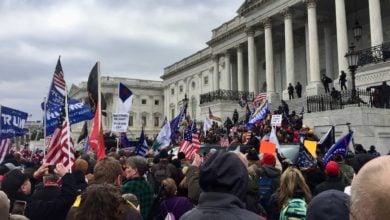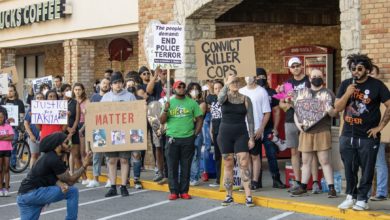Orlando, Fla., is touted as the
“happiest place on earth.” The city has a high number of
hotel rooms, second only to Las Vegas, to accommodate the many
tourists. But the deepening economic crisis places Orlando as seventh
highest in number of foreclosures, and now many of those hotel rooms
are filled with homeless families. The shelter system is inadequate
and separates families who cannot care for themselves. Of course,
Orlando is not the only city where families are devastated by
poverty.
According to a recent report by the
Brookings Institution, child poverty in the U.S. is nearly 25
percent. And the real number of children living in poverty is much
higher, as that statistic is based on the federal government criteria
for poverty, which requires that a family of four make less than
$22,000 annually. All poor and working people in the United States
know that it takes much more than $22,000 for a family of four to
live securely.
Seminole County, just north of central
Orlando, where millions of tourists come each year to visit
attractions like Disney World and Sea World, represents one example
of the injustice facing increasing numbers of workers and their
children in the United States. In Seminole, over 1,000 school
children have recently become homeless. The Seminole County school
district has rerouted school buses to pick up hundreds of children
living in hotel rooms—children whose families have lost their
homes. Many more are well below the already-low official poverty line
and are food insecure.
Under capitalism, as poverty and
homelessness increase, police repression also increases.
Food Not Bombs struggle a case in
point
The organization Food
Not Bombs has been in the frontlines providing free and
healthy meals for those who need it while facing severe police
repression in Orlando.
In 2006, to prevent the
work of FNB, the city of Orlando passed an ordinance that
forbids “large group feeding,” which it defines as “an event
intended to attract, attracting, or likely to attract 25 or more
people, including distributors and servers, in a park or park
facility owned or controlled by the City.”
To prevent the capitalist state from
appearing quite so heartless, the ordinance does allow for
organizations providing food to the hungry to apply for a permit for
“food gatherings” two times a year. Orlando, dependent on
tourism, wants to conceal the despair the local population is
experiencing—or prevent the distribution of food altogether with a
cumbersome permit process.
In response to this outrageous law, FNB
sued the city in federal court. After nearly four years of legal
battles, the court ruled in favor of the city, and the city began
enforcing the anti-homeless feeding ordinance. In early June, Orlando
police began arresting members of FNB for the crime of feeding the
hungry; to date, they have arrested over two dozen activists.
Buddy Dyer, the mayor of Orlando, has
gone so far as to refer to the FNB activists as “food terrorists.”
What is the real terror striking poor
and working people in this country? It is not activists who connect
growing poverty to the endless drive for U.S. wars abroad by feeding
people in parks in Orlando. Rather it is the terror of private
property—the rule of the banks and giant corporations, which throw
more and more people into the street as the capitalist crisis drags
on.
By drawing attention to the problems of
hunger and homelessness, by its very name Food Not Bombs threatens to
expose the contradictions and injustices of the capitalist system.
In spite of their efforts, the Orlando
police have been unsuccessful at stopping the feedings. The more
activists they arrest, the more people see that the police are not
working in their interests and the more they want to join the
struggle. FNB continues to recruit volunteers in greater numbers.
“Every
time they arrest somebody,” says FNB organizer Mark Stephens, “We
get twice as many volunteers and three times as many donations.”
To ensure that children grow up safely
housed and fed with nutritious food requires that the cause of this
crisis be addressed. We must fight to end the right of the rich to
own private property. Only then can we guarantee the future of our
children to live in a world without homelessness, hunger and war for
profit.






